Before starting any construction project, securing proper permits and planning approvals is crucial. These approvals ensure your project complies with local regulations, safety codes, and zoning laws. Failing to get permits can lead to fines, delays, or worse—tearing down completed work. Permits and construction planning approvals assistance through management services. Get construction managers to help you. Have a consultation to get started.
In this article, we’ll cover the basics of permits and approvals, their importance, and how to navigate the process efficiently.
1. What Are Permits and Planning Approvals?
Permits and planning approvals are legal authorizations from local government agencies. They ensure your project follows zoning regulations, safety codes, and environmental laws. Without these, your project could face legal issues or safety risks.
Key types of permits include:
- Building permits: For new construction, renovations, or major modifications to structures.
- Electrical permits: Required for new electrical installations or significant upgrades.
- Plumbing permits: Necessary for plumbing work, like installing water heaters or sewer systems.
- Mechanical permits: For HVAC or other mechanical systems.
- Demolition permits: If you’re tearing down part or all of a structure.
Planning approvals focus more on zoning laws and land use. They ensure the project aligns with community guidelines and long-term development goals.
2. Why Are Permits and Approvals Necessary?
Permits and planning approvals serve several critical purposes. Most importantly, they ensure safety and compliance with local laws. Without them, projects can face setbacks like fines or demolition orders.
Why permits are important:
- Safety: Permits confirm that your project meets necessary safety standards.
- Legal compliance: Building without a permit can result in legal action and fines.
- Zoning compliance: Approvals ensure your project fits within local land-use and zoning guidelines.
- Property value: Projects built without proper permits may lower property value or lead to complications in resale.
In short, these approvals protect you from legal and safety risks.
3. Steps in the Permit Process
To get the proper permits, you’ll need to follow a specific process. Being familiar with the steps helps ensure you avoid costly delays.
Here’s how the permit process generally works:
Submit Plans and Applications
First, you submit detailed plans to your local building department. These plans include architectural drawings, construction details, and site information. They must follow local codes and standards.
Plan Review
Next, different departments review your plans. Building, fire safety, and zoning experts check that your project meets all regulations. The review process can take several weeks, depending on the complexity of your project.
Address Revisions
Often, the building department will request revisions. Responding quickly to feedback ensures your project isn’t delayed unnecessarily. Your architect or contractor can handle these changes, keeping the project moving forward.
Receive Permits
After your plans pass inspection, you’ll receive the permits. You can now begin construction, but must follow the conditions outlined in the permits.
4. Types of Permits You Might Need
Several permits may be required depending on the nature of your project. Knowing what you need can help you avoid unexpected roadblocks.
Common types of permits include:
Building Permits
Building permits cover the overall construction of new buildings, renovations, or significant changes to existing structures. They ensure structural safety and code compliance.
Electrical Permits
If your project involves electrical work, such as rewiring or installing new systems, you will need an electrical permit. It ensures your electrical installations meet safety standards and prevent hazards like fires.
Plumbing Permits
Plumbing permits are necessary for installations like water heaters, sewer systems, or any major plumbing work. Proper permits ensure that the plumbing complies with health and safety regulations.
Mechanical Permits
If you’re installing or upgrading HVAC systems, mechanical permits are required. These permits ensure that the system is installed properly and operates safely.
Demolition Permits
Demolition permits are needed if any part of the structure will be torn down. These ensure that the demolition is carried out safely and without affecting nearby properties.
5. Zoning and Land Use Approvals
In addition to permits, zoning and land-use approvals may be necessary. Zoning laws regulate how land is used within a specific area. These approvals ensure your project fits within the community’s broader plans.
Common zoning approvals include:
- Use permits: Required when your project involves a change in the property’s function.
- Variance requests: When your project doesn’t meet current zoning laws, a variance can grant exceptions.
- Environmental impact assessments: Necessary for projects that could affect the local environment.
These approvals help maintain order within communities and prevent projects that could harm the environment or neighborhood.
6. Inspections During Construction
Permits don’t end when construction begins. Your project will also require several inspections at different stages. These inspections ensure your work complies with the approved plans.
Types of inspections include:
Foundation Inspections
These occur early in the project. Inspectors check the foundation’s stability to ensure it meets structural and safety standards.
Framing Inspections
Once the building’s framework is up, an inspector will review the structural integrity before moving forward with other work.
Electrical and Plumbing Inspections
As electrical and plumbing systems are installed, inspectors review the work to ensure it meets local codes.
Final Inspection
After construction is complete, a final inspection ensures that everything complies with the approved plans and meets safety regulations. You’ll need to pass this before the building can be occupied.
7. Common Challenges and Delays
While permits are essential, the process can sometimes lead to delays. Understanding common challenges can help you avoid these issues and stay on schedule.
Challenges you may face:
- Incomplete applications: Missing or incorrect information can lead to delays.
- Design conflicts: If your plans don’t meet local codes, they’ll need revisions.
- Environmental concerns: Projects that may impact protected areas can require additional reviews, leading to delays.
- Community opposition: If local residents or businesses oppose your project, the review process could take longer.
To avoid delays, double-check that all your paperwork is in order and work closely with your architect or contractor.
8. Tips for Speeding Up the Permit Process
Although the permitting process can be time-consuming, there are ways to streamline it. A proactive approach can help you avoid delays and get started on construction sooner.
Here’s how to speed up the process:
- Submit complete plans: Ensure all paperwork and details are accurate when submitting your application.
- Consult with local authorities: Reach out to your building department early to understand the specific requirements.
- Hire experienced professionals: Work with architects and contractors who are familiar with local codes and regulations.
- Respond to feedback quickly: When you receive requests for revisions, address them promptly to keep the process moving.
By following these tips, you can help reduce waiting times and prevent unnecessary roadblocks.
Conclusion
Securing permits and planning approvals is a crucial part of any construction project. These legal steps ensure that your project complies with zoning laws, safety codes, and local regulations. Although the process can take time, understanding the requirements and working closely with experienced professionals helps avoid costly delays.
By submitting complete applications, responding to feedback quickly, and planning for necessary inspections, you’ll keep your project on track and compliant with all legal standards. Taking the time to follow these steps ensures a smooth and successful construction process. Permits and construction planning approvals assistance through management services. Get construction managers to help you. Have a consultation to get started.


